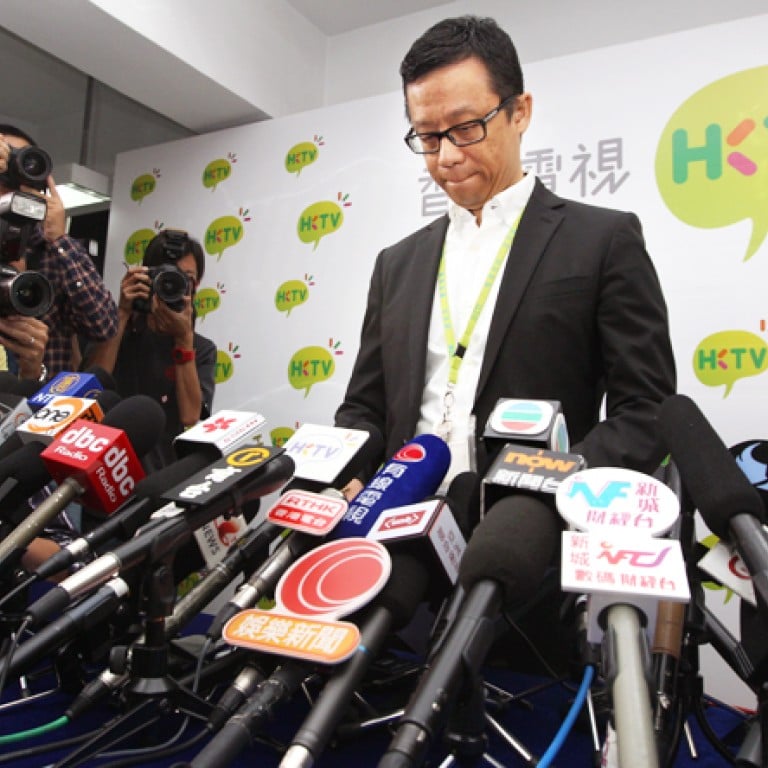
Update | Public outcry over rejection of Ricky Wong's free-to-air TV licence bid
Politicians and 410,000 on Facebook demand explanation as entrepreneur says he was asked by government to join bidding process in 2009
Officials faced mounting public pressure yesterday to explain why they denied Ricky Wong Wai-kay's company a free-to-air television licence.
The shocked telecoms entrepreneur revealed that he joined the race for a licence in 2009 at the invitation of the government.
But his was the only bid to be rejected on Tuesday when the granting of free-to-air television licences to two other players - pay-TV operators PCCW and i-Cable - was announced.
They will compete with existing players TVB and ATV.
The award of licences only to PCCW's HK Television Entertainment Company and i-Cable's Fantastic Television caused a public outcry online and in radio talkback shows.
Politicians and nearly 400,000 people who signed a Facebook petition demanded that the government give a full account of the reasons for denying Wong's Hong Kong Television Network (HKTV) a licence. Thousands vowed to protest at government headquarters on Sunday.
Commerce minister Greg So Kam-leung said a consultants' report - which the government has not made public - predicted the city could not support five television stations.
But Wong, who said 320 of HKTV's 500 staff would lose their jobs at the end of this month, described the decision as unjust and "against the public".
He said the government provided no explanation for why he lost out and he did not know the rules had been changed, from having an unlimited number of licensees to choosing two out of three applicants.
The government told legislators in a 1998 paper that "under the new technology-neutral licensing regime, there would be no limit on the number of domestic free licences issued".
Wong said he was contacted by a very senior government official four years ago.
"In 2009, the government called me to invite me [to bid]. On December 31, 2009, we submitted the application," he said.
Wong would not confirm that the official was the then commerce minister, Rita Lau Ng Wai-lan, because it was possible a court would review the decision.
Meanwhile, Philip Li Koi-hop, the chairman of the fringe political group, the People's Opposition Party, filed an application for a judicial review.
A government source said: "As lawsuits are looming, the government has to be cautious in explaining the rationale behind its decision, apart from stating general principles."
Wong defended the quality of HKTV's bid. "We are the most qualified among the three applicants. We focus on entertainment, which is what Hong Kong lacks," he said.
But So pointed to HKTV's plan to operate as many as 30 channels and questioned whether it had the experience to do so or could be competitive. Wong said: "If we are not up to standard and if our score is low, show us the score sheet.
"If this just ends like this, does Hong Kong still have justice?"
A member of the Communications Authority's broadcast complaints committee, Simon Ho Sai-hau, demanded a government explanation, saying it was not the administration's job to ensure a television operator's survival.
Wong said he had no plans to acquire other stations or reapply in 2015 when the licences for TVB and ATV expired.
Video: CY Leung at Legco on the free-to-air ruling


